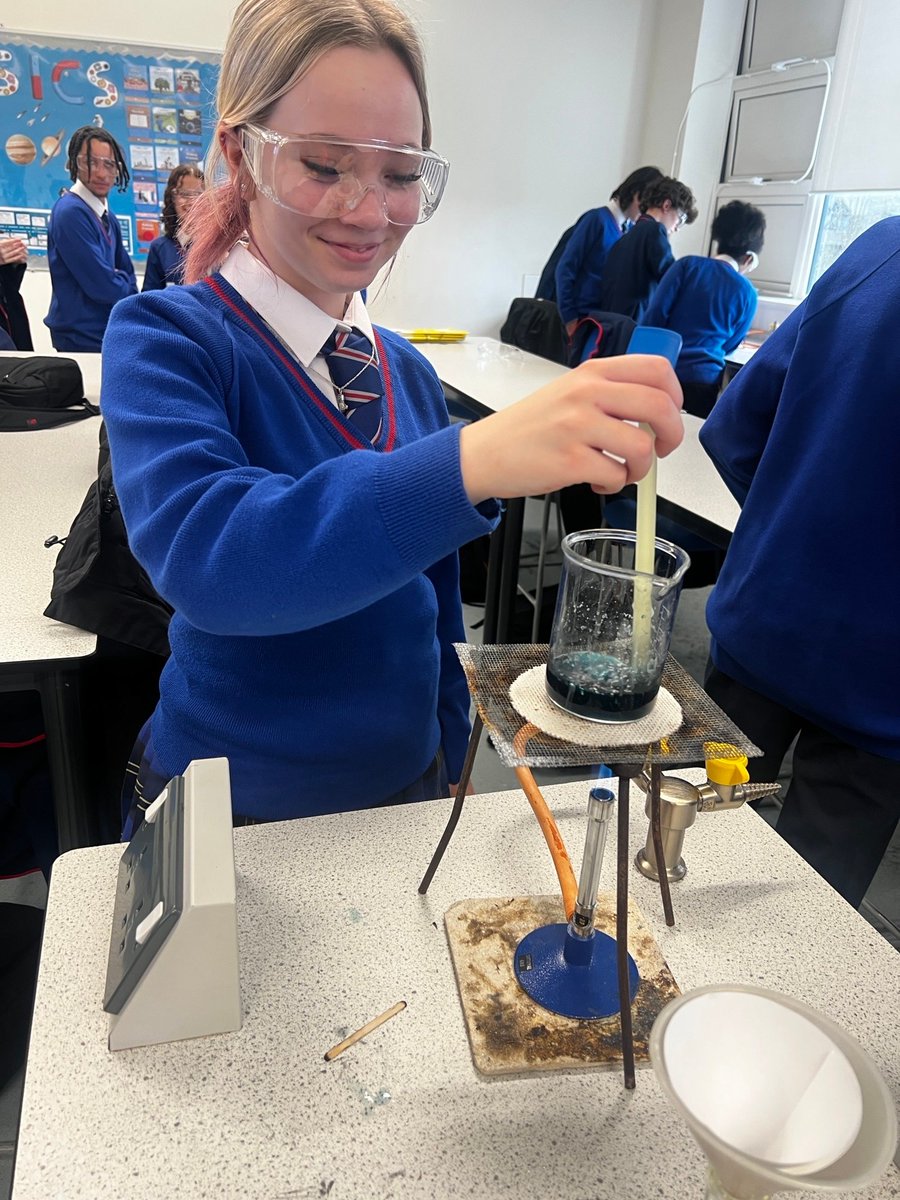Curriculum Overview
The overarching aim of Harris Academy Beckenham is to end the cycle of poverty and disadvantage by ensuring all students have equity of entitlement to knowledge.
Our vision is to improve the life chances for all students and accelerate social mobility because we know knowledge is power.
Our curriculum is underpinned by our learning ethos of the 4 Rs – Resilience, Reflectiveness, Reciprocity and Resourcefulness. Our 4 Rs allow us to build students’ learning power which supports their academic, cognitive, emotional, and social development and guarantees high achievement. By developing these learning attributes and a “can do” attitude we know our students are well equipped and prepared for life in the 21st century.
For further information about the curriculum please contact the subject lead via info@harrisbeckenham.org.uk or contact the main office.
Purpose of our curriculum
Our curriculum is an ambitious and challenging knowledge rich curriculum which teaches depth and breadth across all subjects. We ensure all students have access to a broad and balanced body of knowledge regardless of demographics and starting points. The central place of knowledge within the curriculum is explicit within our Academy. The inventive design of our curriculum and the high-quality implementation of that curriculum are integral to what we do as an individual Academy and as a vital part of Harris Federation. To this end we have worked as a collaborative Multi Academy Trust. We harness the expertise from within Harris Academy Beckenham, working in collaboration with the consultants and network strands to develop a relevant, challenging and rich curriculum model. Whilst we offer personalised pathways for our learners at each key stage, all students have equal access to a broad and diverse curriculum. Our enrichment curriculum provides a further extension to our students’ learning, providing opportunities to further consolidate the 4Rs as well as enhance every child’s cultural capital.
Curriculum leaders constantly review and improve curricular choices by engaging in regular debate on ‘what’ to teach before considering ‘how ‘to teach it. We acknowledge that the curriculum is alive and needs nurturing, it is not a list of content but a canon that must be considered and amended constantly to ensure we teach the best that has been thought, said or written. Leaders set an ambitious intent for curriculum as we know that ‘powerful’ knowledge’, which is specialised and takes its authority from leading academic institutions, gives students power in life.
Statement of principle
Resilience, Reflectiveness, Resourcefulness and Reciprocity
We aim to provide all students with opportunities to access and engage with the best possible curriculum, but also to help students comprehend that while knowledge is powerful it is also insecure, contested and evolving. We encourage our students to see themselves as enquiring learners who help to build their own sense of their place within their educational world.
We secure concepts in English and Mathematics throughout every phase and this acts as a gateway to acquiring core knowledge in a rich range of subjects such that we develop students’ expertise within those individual subject disciplines.
Our curriculum pivots on WORD (Writing, Oracy, Reading Development), with every teacher dedicated to raising the levels of eloquent, accurate and confident communication of every student.
An enriched vocabulary enables a better understanding of concepts and ideas and we facilitate access to knowledge beyond our students’ ordinary daily experiences. We do this by expanding their cultural capital and the breadth of their vocabulary.
Students are exposed to a variety of texts both fiction and non-fiction, a wide range of creative arts and thoughtfully planned learning outside the classroom. Students follow a three-year Key Stage 3 curriculum, meaning that GCSE and other vocational options will be selected for study at the end of Year 9.
Curriculum implementation
How do students learn the curriculum at Harris Academy Beckenham?
Our implementation of the curriculum is governed by our pedagogical approach to Teaching and Learning. We care deeply about practising our teaching craft to ensure we are explicitly clear in instructing powerful knowledge which fosters a strong academic climate. ‘Knowledge is Power’ underpins our whole approach to teaching and learning.
The Big Question
Our lessons are designed around a Big Question to entice and provoke deep thinking and enquiry from the outset. We want our students to THINK HARD about what they are learning and discovering where subject disciplinary language supports our students to think, write and orate like a Scientist, an Historian or Geographer.

Knowledge Retrieval
In order for learning to be effective, every lesson begins with a high challenge knowledge retrieval task/s which interleaves learning from last week, last month, last year to ensure that knowledge is stored to students’ long-term memory. These tasks are usually 10 - 15 minutes in length where teachers will refrain from providing too much help in the first 10 minutes, instead motivating students to think hard without looking back over previous work. The questions designed to stop the forgetting of the most vital knowledge, facts and skills.
Teachers will refrain from providing too much help in the first 10 minutes, instead motivating students to think hard without looking back over previous work.
The teacher then spends time going through the answers, questioning and checking for understanding before reteaching the most important points if necessary, and students make corrections. The graph below illustrates our belief, that the more knowledge retrieved during the knowledge retrieval task leads to more knowledge being remembered.

Here are some examples of retrieval tasks



Our HABE principles for teaching
Our approach in the classroom is underpinned by strong education research where teachers employ the, “I do, We do, You do” model of instruction. We truly believe that the teacher is the expert in the room and through clear, direct effective instruction and modelling there is no limit to what our students can achieve.
|
|
|
|
|
|
|
The HABE Way principles
We follow this with a ‘We Do’ phase that provides support through co construction. Here you will see processes deconstructed, lots of questions being asked, students helping the teacher do some more examples, paired talk, and practice with writing frames. During this phase the teacher will be gauge how well students have grasped the new knowledge and skills being presented and whether they fully understand what is being asked of them. The teacher may have to revert to the I do model if the We do element is not fully met.Following the ‘Knowledge Retrieval, teachers use high challenge “thinking hard strategies” in the ‘I do’ phase. This is where teachers introduce the new content clearly with great examples, models, explanations and lots of questioning. We pitch it high, so everyone is challenged. During this phase students are mostly passive learners as they observe the teacher modelling and explaining the work. The teacher will engage students by use a variety of different methods to check understanding.
Finally, students practise the new knowledge and/or skills they’ve learned independently without support which is this ‘You do’ phase of the lesson. Rather than different levels of tasks, we strive for everyone doing the same, difficult work. The support given in the ‘We Do’ phase ensures that all students can perform the ‘you do’ practise successfully, gaining confidence and embedding vital knowledge in long term memory as they do so.
How do we get better at teaching?
We know that practice is essential to making change and therefore all teachers having a teaching coach where they meet regularly for instructional coaching where they get granular about how to improve specific areas of practice. This regular support ensures everyone is getting better faster.
The impact of our curriculum
Our formative assessments are designed to support students in achieving fluency in each subject. This means that in lessons pupils are questioned on prior knowledge in order to embed this knowledge in their long-term memory. This frees up their working memory to attend to current learning. We are particularly conscious of the role that literacy and vocabulary plays in unlocking the whole curriculum. Our teachers explicitly teach the meaning of subject-specific language, and we expect lessons to contain challenging reading and writing.
We also encourage all students to read widely and provide guided reading lists to students, parents and carers. Every student has an equal right to a challenging and enlightening curriculum. By teaching this curriculum well, and developing effective habits in our students, we bring out the best in everyone at HABE.
The impact of our curriculum is measured through several means:
- Outcomes for students at GCSE and A Level
- Progress and attainment data for current year groups
- Destination data
- Attendance data
- Behaviour logs
- Engagement in enrichment activities
- Progress towards the Gatsby benchmarks
- Student voice
- MER including DDIs and work scrutiny
Year 7 Curriculum Overview
Year 7 will follow the new 3 year KS3
All students will study the following number of 80 minute lessons per week:
- 3 English
- 3 Mathematics
- 3 Science
- 2 Physical Education
- 1 Religious Education
- 1 History
- 1 Geography
- 1 Art and Design
- 1 Drama
- 1 Music
- 2 French, Spanish or Mandarin
Students will engage with IT through all subjects areas; using the internet for research, for extended writing, presentations and in the production of tables and graphs.
For students who are behind their chronological age in literacy and numeracy, catch up will be provided within the curriculum.
Students will complete a 25 minute tutorial each day where they will cover additional PSHE, learn about British values, improve their reading and plan future career opportunities. This will be supplemented by regular drop down days to cover these aspects of students’ personal development in further detail.
The Academy is also proud to offer a rich and varied enrichment timetable of activities that take place before and after the Academy each day.
Year 8 Curriculum Overview
Year 8 will follow the new 3 year KS3
All students will study the following number of 80 minute lessons per week:
- 4 English
- 3 Mathematics
- 3 Science
- 1 Physical Education
- 1 Religious Education
- 1 History
- 1 Geography
- 1 Art
- 1 Design and Technology
- 1 Performing Arts
- 2 French or Spanish
Students will engage with IT through all subjects areas; using the internet for research, for extended writing, presentations and in the production of tables and graphs.
For students who are behind their chronological age in literacy and numeracy, catch up will be provided within the curriculum.
Students will complete a 25 minute tutorial each day where they will cover additional PSHE, learn about British values, improve their reading and plan future career opportunities. This will be supplemented by regular drop down days to cover these aspects of students’ personal development in further detail.
The Academy is also proud to offer a rich and varied enrichment timetable of activities that take place before and after the Academy each day.
Year 9 Curriculum Overview
Year 9 are following a Key Stage 4 Curriculum
The number of option subjects has been increased to 4 to ensure a broad curriculum and increased opportunities for EBacc uptake.
All students will study the following number of 80 minute lessons per week.
- 3 English (one lesson = 120 mins per week)
- 3 Mathematics (one lesson = 120 mins per week)
- 3 Science (one lesson = 120 mins per week)
- 1 Physical Education
- 1 Citizenship
- 2 Option A
- 2 Option B
- 2 Option C
- 2 Option D
Students will engage with IT through all subjects areas; using the internet for research, for extended writing, presentations and in the production of tables and graphs.
Students will complete a 25 minute tutorial each day where they will cover additional PSHE, learn about British values, improve their reading and plan future career opportunities. This will be supplemented by regular drop down days to cover these aspects of students’ personal development in further detail.
The Academy is also proud to offer a rich and varied enrichment timetable of activities that take place before and after the Academy each day.
Year 10 Curriculum Overview
Year 10 are following a Key Stage 4 Curriculum
All students will study the following number of 80 minute lessons per week.
- 4 English
- 4 Mathematics
- 3 Science (one lesson = 120 mins per week)
- 1 Physical Education (one lesson = 120 mins per week)
- 1 Citizenship (one lesson = 120 mins per week)
- 2 Option A
- 2 Option B
- 2 Option C
Students will engage with IT through all subjects areas; using the internet for research, for extended writing, presentations and in the production of tables and graphs.
Students will complete a 25 minute tutorial each day where they will cover additional PSHE, learn about British values, improve their reading and plan future career opportunities. This will be supplemented by regular drop down days to cover these aspects of students’ personal development in further detail.
The Academy is also proud to offer a rich and varied enrichment timetable of activities that take place before and after the Academy each day.
Year 11 Curriculum Overview
Year 11 are following a Key Stage 4 Curriculum
The number of option subjects has been increased to 4 to ensure a broad curriculum and increased opportunities for EBacc uptake.
All students will study the following number of 80 minute lessons per week.
- 4 English
- 3 Mathematics (one lesson = 120 mins per week)
- 4 Science
- 1 Physical Education (one lesson = 120 mins per week)
- 1 Religious Education (one lesson = 120 mins per week)
- 2 Option A
- 2 Option B
- 2 Option C
Students will engage with IT through all subjects areas; using the internet for research, for extended writing, presentations and in the production of tables and graphs.
Students will complete a 25 minute tutorial each day where they will cover additional PSHE, learn about British values, improve their reading and plan future career opportunities. This will be supplemented by regular drop down days to cover these aspects of students’ personal development in further detail.
The Academy is also proud to offer a rich and varied enrichment timetable of activities that take place before and after the Academy each day.






















